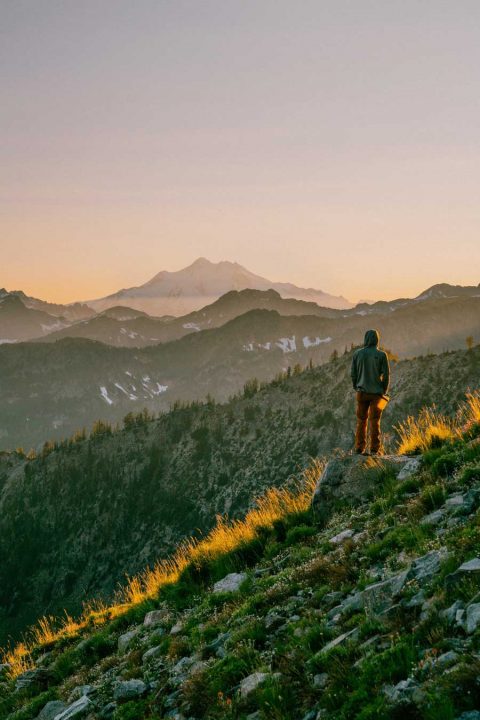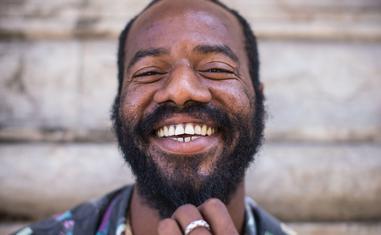The views expressed in our content reflect individual perspectives and do not represent the authoritative views of the Baha'i Faith.
“What happens when you become a Baha’i?” a friend asked. He’s been learning about the Baha’i Faith for a while now, believes in its principles, and seems curious – and a little nervous – about the next step.
We had just returned from a road trip, and we talked as we sat in my living room drinking some sparkling water. My friend, who I’ve known for quite a while, has a well-developed balance of curiosity and natural caution in his character, so he’s careful with all of his decisions. I’ve noticed that he thoughtfully deliberates as he learns new things, intelligently weighing the evidence and trying his best to be equitable and fair in his judgment. I think he probably acquired that circumspect approach to life by going to law school and then becoming an attorney, although he works in another field and doesn’t practice law now.

“Well,” I said, trying to answer him in the most helpful way I could, “that’s a decision you make in your own mind and heart. If you accept Baha’u’llah and believe in the Baha’i principles at this point in your spiritual search, it sounds like you’ve already made your decision.”
“Maybe. I mean, I do believe in Baha’u’llah’s principles,” he told me, “I pretty much think of myself as a Baha’i already, but I’m wondering if I need to go through any kind of formal ceremony, baptism, a ritual, that kind of thing?”
“No, definitely not,” I said. “The Baha’i Faith doesn’t have any rituals. Becoming a Baha’i happens internally, not externally.”
“What do you mean, internally?”
I took a book down from a bookshelf, paged through it, and read this passage from a letter written on behalf of the Universal House of Justice in 1982:
… bear in mind that the signature on a [Baha’i declaration] card, in the sense that it represents the record of the date of the declaration of faith and data about the declarant, is to satisfy administrative requirements enabling the enrollment of the new believer in the community. The deeper implications of the declaration of faith are between the individual and God.
“So there’s a card I sign, then?” I could tell this made him a little wary.
“Sure,” I said, “whenever you’re ready, you’ll sign a Baha’i declaration card, which makes it official, and enrolls you in the Baha’i community where you live. Like the quote says, that’s basically an administrative thing. Simple, no pressure. The decision to become a Baha’i really is between you and God.”
He thought about that for a moment, and then asked “What does that declaration card say?”
“It basically says that you declare your belief in Baha’u’llah, the Bab and Abdu’l-Baha, and that you accept their teachings, institutions, laws and principles.”
“That sounds so, I don’t know, kind of informal and easy.”
“Like I said, the decision happens inside you. All you’re doing when you sign that enrollment card is making a commitment to try to live a Baha’i life – and adding your name to the membership rolls, which makes you eligible to vote in Baha’i elections, participate in community activities, and have the voluntary ability to give to the Baha’i Fund.”
“What if I decide later that I don’t want to be a Baha’i? What happens then?”
I couldn’t help myself as I laughed about that seemingly legalistic question, and my friend reacted by saying “No, I mean, I’ve heard some stories about some other religions trying to forcibly keep people from leaving those Faiths.”
“No such thing when you’re a Baha’i,” I said. “You enter the Faith voluntarily, and if you decide to leave the Faith, that’s voluntary, too. Baha’is don’t coerce anyone. The Bab said ‘The path to guidance is one of love and compassion, not of force and coercion.’”
“OK, that’s great. But I was raised a Presbyterian. What do I do about that? I can’t have two religions at once, can I?”
“When you become a Baha’i,” I said, “you accept all of the messengers of God.” Then I quoted a sentence from a passage in the Baha’i writings that I memorized a long time ago:
The fundamental principle enunciated by Baha’u’llah, the followers of His Faith firmly believe, is that Religious truth is not absolute but relative, that Divine Revelation is a continuous and progressive process, that all the great religions of the world are divine in origin, that their basic principles are in complete harmony, that their aims and purposes are one and the same, that their teachings are but facets of one truth, that their functions are complementary, that they differ only in the non-essential aspects of their doctrines and that their missions represent successive stages in the spiritual evolution of human society.
“Wow,” he said, listening carefully, staring into the middle distance, and looking a little gobsmacked, “I didn’t expect this.”
“What do you mean?” I asked.
“I don’t know, I thought … Actually, I thought becoming a Baha’i would involve some kind of process.” He put the emphasis on the word process.
“It does,” I said, “but the process takes place in your soul.”

















Comments
Sign in or create an account
Continue with Facebookor